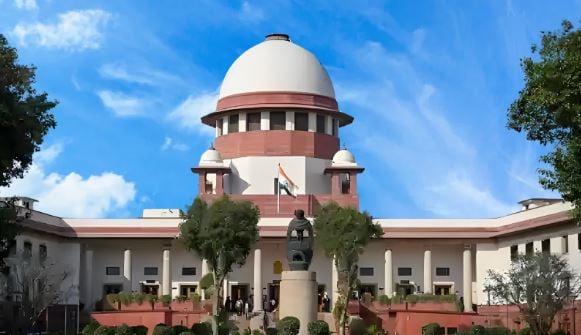What are Issues Around Article 39(b) of the Constitution?
A nine-judge bench of the Supreme Court, headed by Chief Justice of India D.Y. Chandrachud, is currently hearing a case to interpret Article 39(b) of the Constitution. The key issue is whether the phrase “material resources of the community” in this Directive Principle of State Policy includes privately-owned resources and allows the government to redistribute such resources for the common good. The bench observed that an unbridled agenda of communism or socialism is not supported by the Constitution in its present form.
- The reference to the nine-judge bench arose due to conflicting views in the 1978 Ranganatha Reddy case, where the majority held that private property is not included in community resources, but Justice Krishna Iyer dissented, stating that it would include private property.
- In 2002, a nine-judge bench was set up to resolve this conflict and provide a clear interpretation of Article 39(b).
Arguments Presented
Solicitor General Tushar Mehta argued that if a private property contains material resources that can be distributed for the common good, it may fall under Article 39(b). However, he disagreed with the view that all private property is a community resource. The Chief Justice observed that certain privately-owned resources might have a bearing on public interest, requiring state regulation. However, attributing an unbridled agenda of communism or socialism to Article 39(b) and (c) would be inconsistent with the current constitutional framework, which protects private property and the right to carry on business.
Interpreting the Constitution in the Present Context
The Court emphasized the need to interpret the Constitution in light of India’s current economic landscape and future aspirations. It noted that India has adopted policies encouraging private sector investment and that the interpretation of Article 39(b) should not send a message negating the protection of private rights. The Chief Justice stressed the importance of a nuanced interpretation that balances the significance of Article 39(b) and (c) with the need to attract private investment.
About Articles 39(b)
- Article 39(b) is a Directive Principle of State Policy, which is non-justiciable but fundamental in the governance of the country.
- The Directive Principles aim to establish a welfare state and promote social and economic justice.
- The interpretation of Article 39(b) has significant implications for property rights, economic policies, and the balance between individual rights and societal welfare.
The hearing in the matter is set to continue, and the Supreme Court’s decision will provide clarity on the interpretation of Article 39(b) and its implications for private property rights in the contemporary Indian context.
Month: Current Affairs - May, 2024
Category: Legal & Constitution Current Affairs






